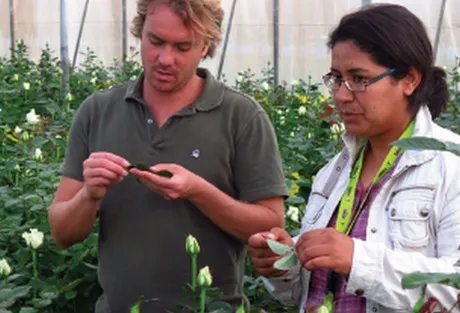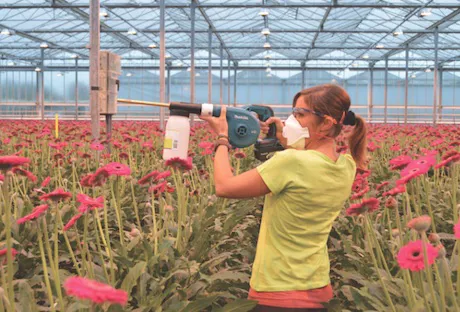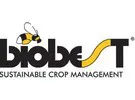Kenyan rose growers prefer biological crop protection products. This is because of three reasons explains Theunis. Firstly, pests are getting resistant to chemicals. Secondly, using biological products is better for the working environment of the employees. Finally, an upcoming pressure from the retail sector can be noticed. This pressure is already visible in the supply of vegetables, but it is also coming for the cut flower sector, explains Theunis. "There are some retailers who already require residue free potted plants, so I expect that these requirements will also come for cut flowers in the near future."
In Kenya, rose growers have to control various types of pests but thrips and spider mites are the most occurring. In order to control these pests biologically, natural predators are released and are called beneficial insects and mites. Phytoseiulus persimilis is a well-known predatory mite, introduced against spider mites, and is already, successfully, used for many years in Kenya. Amblyseius swirskii, another predatory mite, is introduced to control thrips. However, when using swirskii, most of the Kenyan growers need to spray additionally with chemical crop protection products. This, because of the fact that swirksii cannot handle a large thrips population that is often present in Kenyan farm. "The large thrips pressure can only be prevented with an army of swirskii present in the crop", explains Theunis. In order to form this army, more swirskii need to be deployed or they need to be fed with supplementary food, for example NutrimiteTM to grow a large population.
NutrimiteTM is a highly nutritional food supplement based on specially selected pollen. It is used to accelerate and enhance population development of pollen feeding phytoseid predatory mites, such as A. swirskii and E. gallicus. Therefore, a higher number of predatory mites can be reached throughout the entire season. "NutrimiteTM enables the swirskii army to established early, before thrips arrives. Moreover, NutrimiteTM is able to maintain a strong population of swirskii until the end of the season."

NutrimiteTM is already successfully introduced in many countries over the world. At this moment several trials are running in cooperation with the local Biobest distributor, Hygrotech, and Kenyan growers. These trials run synchronic. A weekly release of swirskii is being compared with one introduction of swirskii in combination with a two weekly application of NutrimiteTM. "Currently, the trials have shown good results, but the test period is not over yet." When the test period is over and the results remain positive, NutrimiteTM will be introduced in the Kenyan market together with swirskii. "We already received permission to use NutrimiteTM in Kenya. The permission to put 'our swirskii' on the market is pending."

For more information

Biobest
Fonny Theunis
Email: fonny.theunis@biobest.be
www.biobest.be
